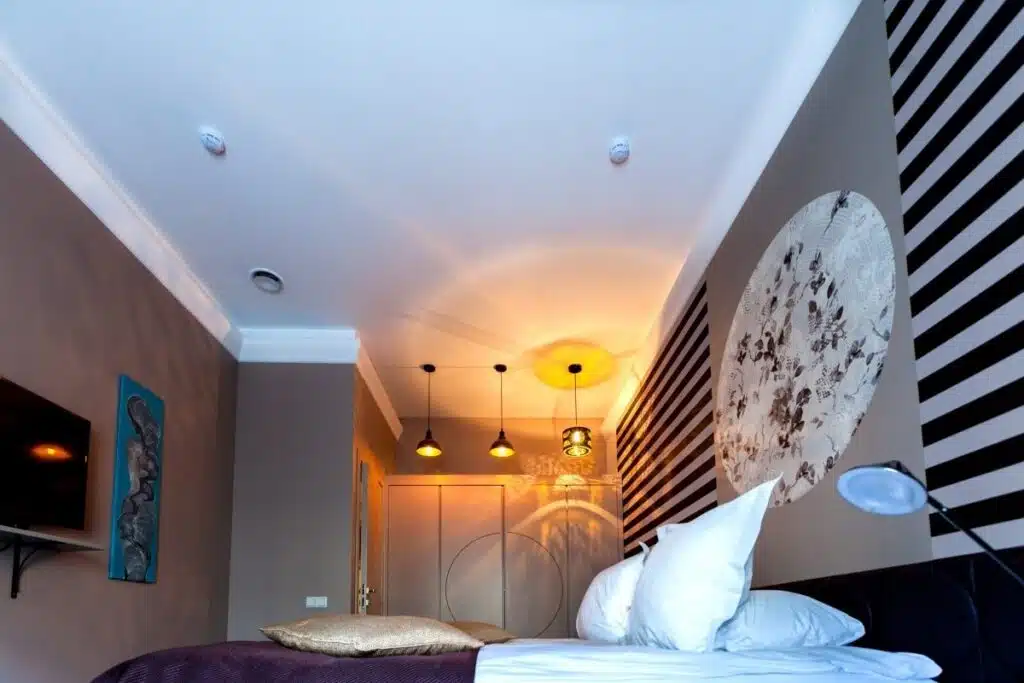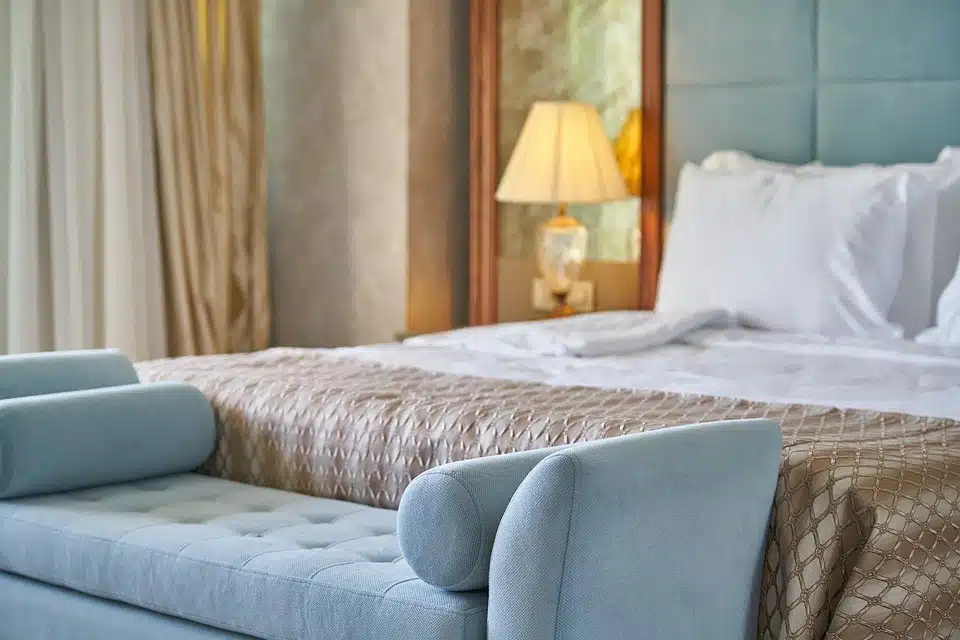Becoming more eco-friendly is not only a moral decision, but it is also more cost-effective for your hotel in the long-run.
Hotels, amongst other large businesses, contribute towards a large carbon footprint. Hotel energy management is essential for the world of sustainable tourism.
Resources are plentiful for those looking to make their homes more energy-efficient. However, not a lot exists for hotels. These ideas will help you make your hotel rooms eco-friendlier.
Partner with environmentally-conscious businesses
Think about the vast amount of companies your hotel connects with. Food products, bathroom amenities, cleaning products, linen, electrical, and so many more.
Being environmentally-conscious is now trending. The great thing about this is that there are now many businesses changing their practices to preserve our Earth’s natural resources. This will also appeal to many guests at your hotel. Work with companies using minimal plastic, buy in bulk, and purchase from sustainable plantations.
Choose to support local business and organic farming. Air traffic emissions are a huge culprit when it comes to pollution. Local businesses do not require long-distance transport of their products to you. Alternatively, work with companies that transport by sea or land instead.
Make Use of Renewable Energy
Solar power harnesses a natural resource, the sun, to generate electricity. Solar power isn’t limited to just solar panelling. Water heating contributes to a significant energy cost for hotels. Consider solar water heating over conventional methods for a more environmentally-favourable approach.
Implement Efficient Heating Methods
Thermal blinds are dual purpose. When temperatures are high, the multiple layers prevent direct sunlight from entering your home. The sunlight can damage furniture and an excess of trapped heat in the guest room can create an uncomfortable atmosphere.
On the contrary, thermal blinds act as a layer of insulation to prevent heat loss through the windows during cold weather.

Update Lighting
A popular option for energy conservation includes LED lighting. This produces a brighter light for a given power output, and are long-lasting, making them more energy-efficient.
Automated functions are much-sought-after in hotel environments. Infrared sensors that detect motion are commonly fitted. This is a way to ensure lighting is only used when a room is in use.
Making the most of natural light lessens the need for power consumption through artificial lighting. Utilise daylight to illuminate your facilities. Windows can set the ambience and create character within your hotel.
Update the HVAC
Reduce your energy output by cleaning your HVAC coils. This improves the efficiency of the HVAC by removing any dirt or dust build-up that causes blockages. A HVAC working in its optimal condition will cost less to run.
If you’re looking to upgrade, choose an energy-efficient option. HVAC units are used almost continuously by guests during their stay, so as you’d imagine, a considerable energy cost exists from its use.
Although energy-efficient, HVAC technology still emits greenhouse gases while in use. Limit its use by utilising window or door ventilation where possible. Consider installing smart thermostats or a guest room energy management solution that either turns that HVAC off or puts it into setback mode when the guest is not in the room.
Utilise Automatic Shutdown Sockets
Standby power surprisingly contributes towards a significant energy cost. Some electronics can consume power while they are switched off, but still plugged into the wall.
Automatic shutdown sockets can help prevent this unnecessary power consumption. These smart outlets use either timers or sensors to shut down power to a device when not in use.
Hotels have televisions, microwaves and other electronics constantly plugged into sockets. Automatic shutdown sockets can save a lot of power. This, in turn, will reduce your power bill.
Try Composting
Your hotel will likely be filled with gardens and fauna. Create compost with your waste to provide a nutritious medium for your plants to thrive. You’ll reduce your hotel’s environmental impact by reducing food waste as well as ‘recycling’ this organic matter for another use.
Your hotel will save money on buying compost and help your plants grow faster and healthier. Compost will be useful to keep your fruit, vegetable and herb garden thriving.
Getting started is simple. All you need is a composting bin, and you’re good to go. Compost should be a mixture of green, nitrogen-rich and brown, carbon-rich materials.
Educate Staff
Your staff have a significant role to play in your hotel, which means they also have a lot of control in their energy consumption. Educate your staff on ways to reduce energy consumption and waste. It could be as simple as making use of natural lighting, unplugging unused appliances from the wall, and conserving water.
A great way to get your employees involved is to leave a suggestion box. Employees can suggest ways the hotel can reduce waste and thus improve energy efficiency.
As tourists look for sustainable options in tourism to mirror their practices, hotels are now looking to opt for a greener image. Head in the right direction by making a start on transforming your hotel into an eco-friendlier space. Thankfully, there are ways you can do so without costing you a fortune or sacrificing your hotel’s look.
Author bio:
It is Harper’s mission to try and live a zero-waste lifestyle and become an advocate of sustainable living. She enjoys writing about sustainable living and is passionate about inspiring others to do the same. Follow Harper’s personal blog to connect with her.

